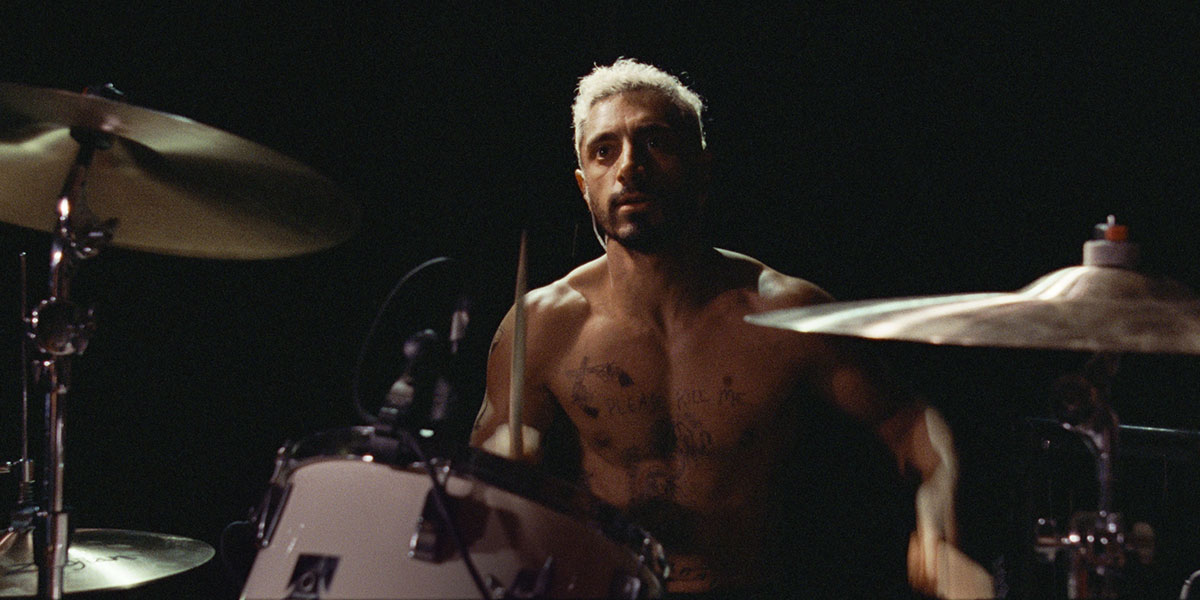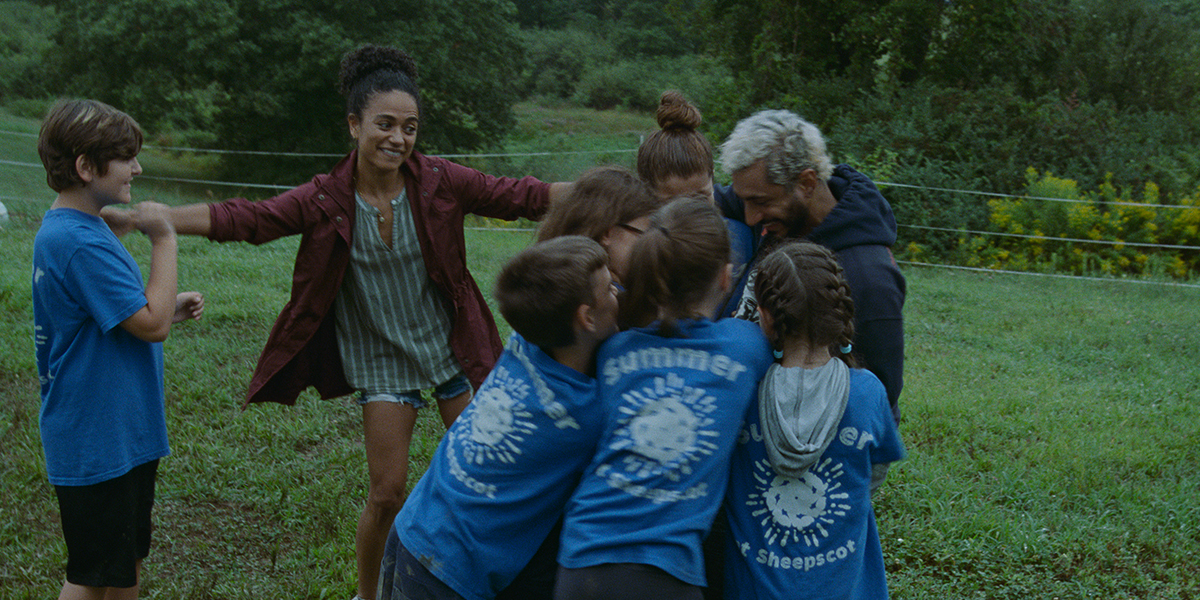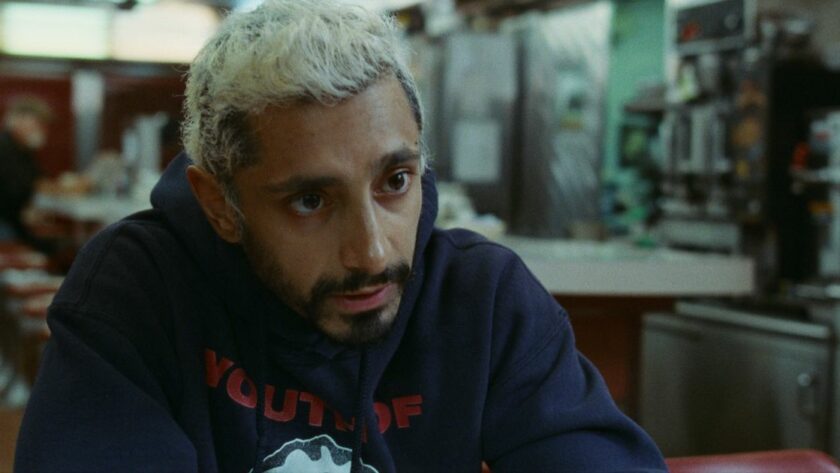Rach Leong reviews Sound of Metal‘s nuanced examination of deafness and addiction.
In line with 2020’s theme of watching everything we once took for granted slip away, Sound of Metal offers an empathetic journey into the world of a drummer who gradually loses his hearing and struggles to deal with the aftermath.
With his bleach-blonde hair and aggressive tattoos, Ruben (Riz Ahmed) comes alive onstage behind his heavy metal drums, forming one half of a punk band with his girlfriend Lou (Olivia Cooke). Both are ex-addicts who supported each other through years of sobriety and now embrace a nomadic lifestyle in their RV, touring across the country. But everything changes when Ruben suffers from a sudden decline in hearing right before a show. What begins as a ringing in his ear evolves into a pervasive muted atmosphere while cymbals clash and guitars shriek around him; this leaves the audience feeling just as disoriented as he does. Director/co-writer Darius Marder excels at giving us an intimate look into his protagonist’s turmoil, effectively conditioning viewers to experience the same perception of loss.

Ahmed—who spent seven months learning drumming and American Sign Language for the role—is brilliant, playing Ruben with remarkable vulnerability. On set, the British-Pakistani actor wore earpieces that emitted increasing amounts of white noise to the point where he could not discern his own voice. Once Ruben realises his hearing impairment is not just a temporary episode, each tweak in his expression exposes a flash of fear or despair. Subtle jitters in body language betray his simmering panic even as he tries to reassure Lou (and himself) that everything will be fine. When the doctor tells him that his priority should be to preserve the hearing he has left, he reacts with immediate denial and refuses to give up drumming, which has long since become central to his identity.
Knowing that trauma usually leads to relapse, a concerned Lou convinces Ruben to stay at a rural deaf commune led by the firm but kind Joe (Paul Raci), a former alcoholic and Vietnam War veteran who lost his hearing in a bomb blast. Being a CODA (Child of Deaf Adults), a veteran and a musician himself, Raci’s performance shines with an earnest authenticity that elevates the film. In an interview, he describes how his mother listened to his recordings by putting her hand on the stereo to feel the bass. This is echoed in the film by a beautiful scene in a playground, where Ruben taps rhythmically on a metal slide while a young boy puts his ear on the surface and feels it reverberate.

Many of the cast members are deaf, and Ahmed’s ASL coach also makes an appearance in the film. It is enthralling to see how they express and emote in a way that embodies the physicality of language. Details like these underscore the foundational work Marder put in to accurately represent the people whose stories he is trying to tell; such sincerity makes up for elements of narrative weakness. Marder dedicates the project to his deaf grandmother who loved films and petitioned for them to be captioned. In honour of her, open captions are displayed throughout, though interestingly, sign language is not subtitled. This clever touch places non-ASL-speaking viewers in the same position as Ruben, who is initially unable to communicate with other members of the commune, but later finds a sense of belonging there.
Sound of Metal presents deafness as a culture rather than a condition. This overarching message is emphasised by Joe when he tells Ruben about the community’s shared belief that being deaf is not a handicap. You learn to live with deafness, instead of seeing it as a problem to fix. However, despite making significant progress over time, Ruben still clings to the hope of prohibitively expensive cochlear implants, which he believes will be able to revert things back to exactly the way they were. This ideological divide lies at the heart of the story: Ruben is faced with the choice to either accept his new life, or continue to be held captive by his desire to restore what is permanently gone.

Perhaps the film’s greatest highlight is its Oscar-worthy sound design, which traps us in Ruben’s auditory state of muffled quietness, sometimes recreating an underwater-like sensation. Supervising sound editor Nicolas Becker, who also worked on Gravity and Arrival, uses Foley effects and mechanical distortions to accentuate the contrast between everyday sounds—from the whirring of a blender to the bustle of traffic—in Ruben’s world and that of a hearing person’s. There are jarring moments, much like the opening sequence of Gravity, where a discordant sound escalates to an ear-splitting crescendo before abruptly cutting away to nothingness, making a few seconds of silence speak volumes.
Most of us are not used to sitting in stillness, often seeking out noise and distractions to fill gaps in our lives. But, as Ruben learns by the end of the film, making peace with silence is a revelation in itself.




